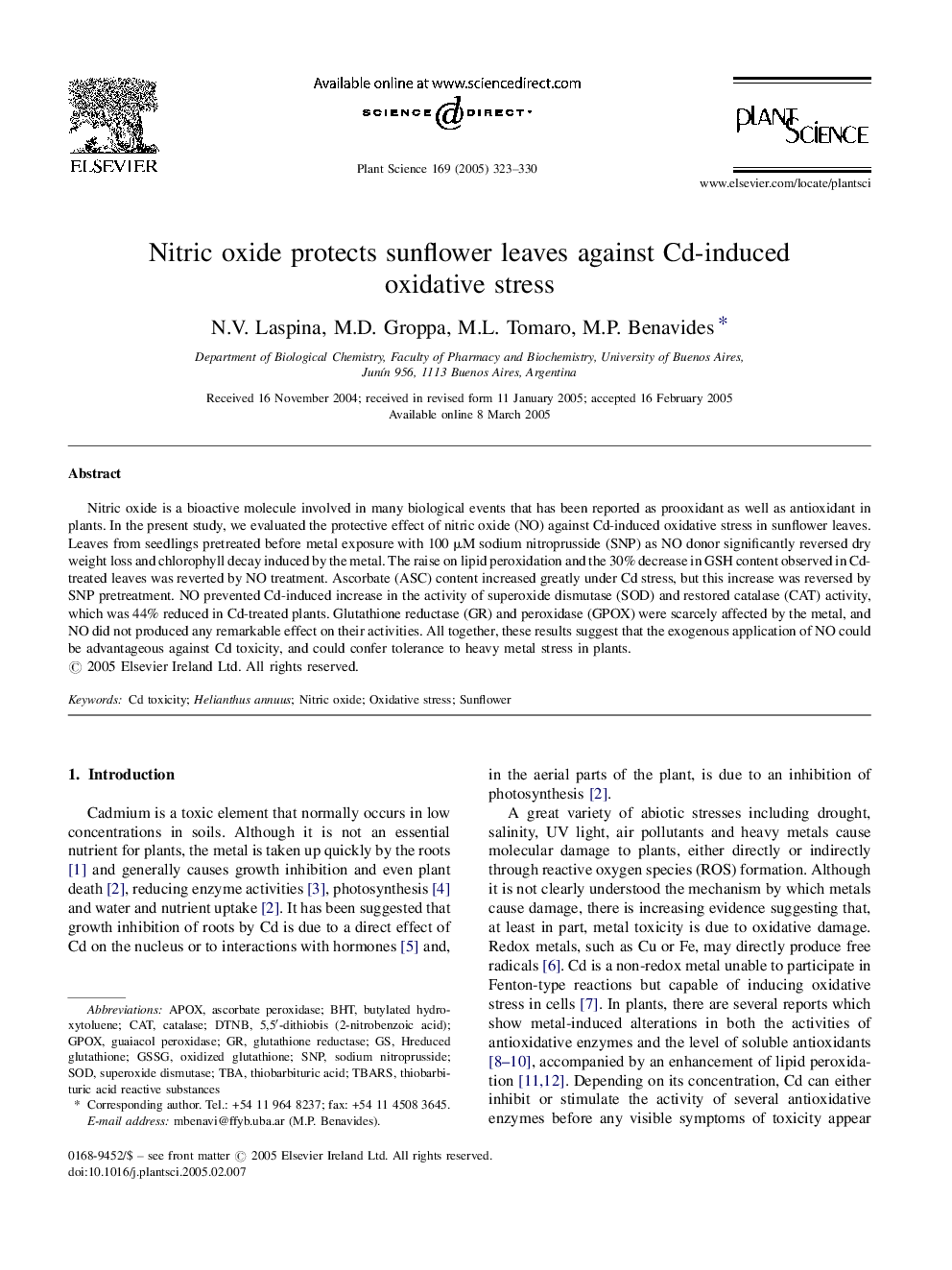| Article ID | Journal | Published Year | Pages | File Type |
|---|---|---|---|---|
| 10840754 | Plant Science | 2005 | 8 Pages |
Abstract
Nitric oxide is a bioactive molecule involved in many biological events that has been reported as prooxidant as well as antioxidant in plants. In the present study, we evaluated the protective effect of nitric oxide (NO) against Cd-induced oxidative stress in sunflower leaves. Leaves from seedlings pretreated before metal exposure with 100 μM sodium nitroprusside (SNP) as NO donor significantly reversed dry weight loss and chlorophyll decay induced by the metal. The raise on lipid peroxidation and the 30% decrease in GSH content observed in Cd-treated leaves was reverted by NO treatment. Ascorbate (ASC) content increased greatly under Cd stress, but this increase was reversed by SNP pretreatment. NO prevented Cd-induced increase in the activity of superoxide dismutase (SOD) and restored catalase (CAT) activity, which was 44% reduced in Cd-treated plants. Glutathione reductase (GR) and peroxidase (GPOX) were scarcely affected by the metal, and NO did not produced any remarkable effect on their activities. All together, these results suggest that the exogenous application of NO could be advantageous against Cd toxicity, and could confer tolerance to heavy metal stress in plants.
Keywords
GSSGAPOXGPOXDTNBTBARSHelianthus annuusTBACATBHT5,5′-dithiobis (2-nitrobenzoic acid)Thiobarbituric acidOxidative stressSODCd toxicitySuperoxide dismutasethiobarbituric acid reactive substancessodium nitroprussideNitric oxidebutylated hydroxytolueneascorbate peroxidaseSNPCatalaseSunfloweroxidized glutathioneglutathione reductaseguaiacol peroxidase
Related Topics
Life Sciences
Agricultural and Biological Sciences
Plant Science
Authors
N.V. Laspina, M.D. Groppa, M.L. Tomaro, M.P. Benavides,
